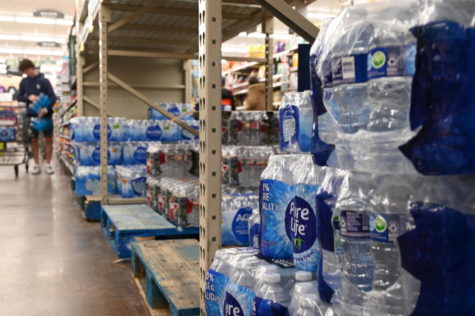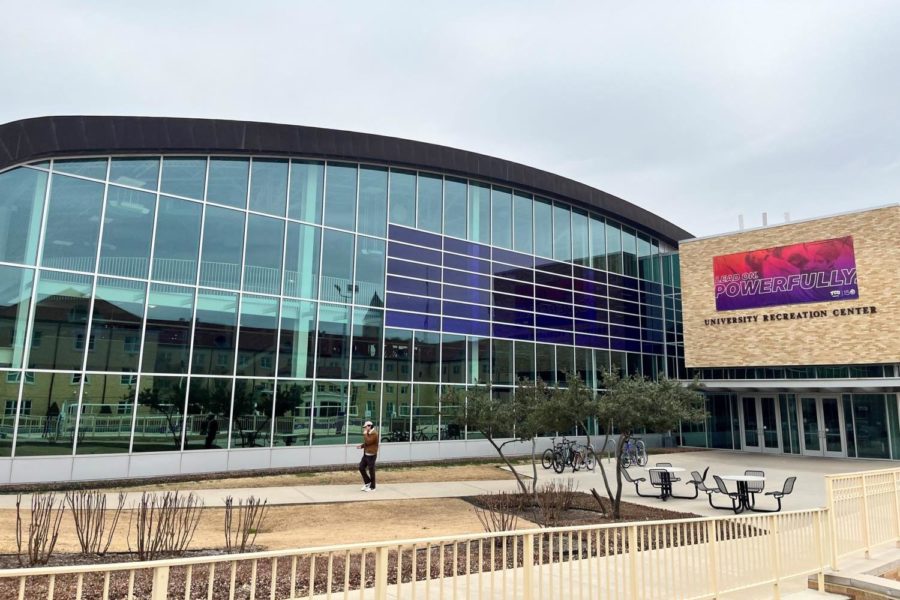Peer Educators inform students on the importance of hydration
TCU Rec center hosts “Water You Doing To Stay Hydrated?” To educate students on hydration and dehydration. (Steven Magallon/TCU360)
Published Apr 18, 2023
Members of the Frogs for Wellness Peer Educators program spoke with students about all things hydration, including how to maintain it and signs of dehydration.
Staying hydrated offers numerous benefits for the human body. In addition to regulating body temperature and aiding in the removal of waste, drinking plenty of water can also help prevent life-threatening conditions.
Men, on average, should consume more water than women. According to the Mayo Clinic, men should drink 3.7 liters of water a day, while women should drink 2.7 liters each day.
The Frogs for Wellness program is partnered with the recreation center and sets up tabling events to educate students and bring awareness to the campus.
Anyone can experience dehydration, but there are groups of people who are at higher risk than others.
Dulce Cecenas, a peer educator, spoke about these groups and why it’s important for students to be educated about hydration.
“Older people and people who work a blue-collar job are more at risk of facing dehydration, along with people who drink caffeine,” Cenenas said. “Having people be more educated will make students happy and more fulfilled in their lives.”

Amelia Heimerman, a peer educator, added that it’s especially important to know about hydration in college.
“As college students transition to adulthood and become more independent, it’s important for them to take in healthy habits like drinking enough water,” Heimerman said. “Especially with the party scene being a thing at universities, it’s important to know when to drink water.”
Drinking more fluids reverses mild to moderate dehydration symptoms; however, “severe dehydration needs immediate medical treatment,” according to Mayo Clinic. Severe dehydration could lead to kidney failure and seizures.
Symptoms of dehydration differ between individuals, but some may include dark urine, fatigue and muscle cramps.
The group also discussed the dangers of diuretics such as alcohol and energy drinks and provided hydrating electrolyte drink mixes for students who attended.
“Diuretics cause your body to secrete more water rather than retain it,” Heimerman said.
In addition to hydration, the program also educates on drugs, alcohol intake and sexual assault awareness.



